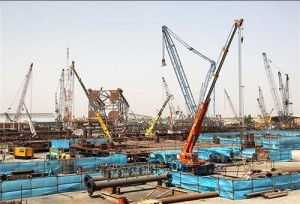 Imports of Iranian crude rose by 100,000 barrels a day last month, with�China,�Japan�and�India�taking more oil as a deal easing sanctions over Iran�s nuclear program took effect, the International Energy Agency said.
Imports of Iranian crude rose by 100,000 barrels a day last month, with�China,�Japan�and�India�taking more oil as a deal easing sanctions over Iran�s nuclear program took effect, the International Energy Agency said.Purchasing countries received 1.32 million barrels a day last month, the IEA, a Paris-based adviser to 28 nations, said in an e-mailed report today. An increase in the number of barrels shipped to the three Asian importers more than made up for reduced deliveries to South Korea, Syria and�Taiwan, the agency said.
An interim accord easing restrictions on insurance for Iran�s oil shipments and freeing up cash held outside the country in return for a suspension of nuclear work went into effect last month. Under the agreement, six buyers permitted under U.S. sanctions to take Iranian crude don�t have to cut imports to avoid penalties.
Iran�had an estimated 30 million barrels of crude held on tankers at the end of January, including 6 million barrels in vessels off China�s coast, according to the report. Total production rose by 30,000 barrels to 2.78 million last month, as cold winter weather in Iran boosted domestic fuel use.
The country, which this week celebrated the 35th anniversary of the Islamic revolution, wants to renew ties with foreign companies even though terms of the nuclear agreement reached in Geneva don�t allow significant new investment, the IEA says. New oil-development contracts that Iran�s government is drafting won�t include concessions or production sharing agreements, the IEA said.
The six buyers permitted to import Iranian crude under U.S. sanctions are�Turkey, China, Japan, India, South Korea and Taiwan. The crude buyers are still barred from increasing purchases, and no other states can take Iranian oil, according to the U.S. sanctions.
The U.S. says Iran�s shipments can�t rise from the roughly 1 million barrels a day to which they slumped, in a 60 percent decline, since sanctions intensified in 2012.
By Bloomberg
The Iran Project is not responsible for the content of quoted articles.










